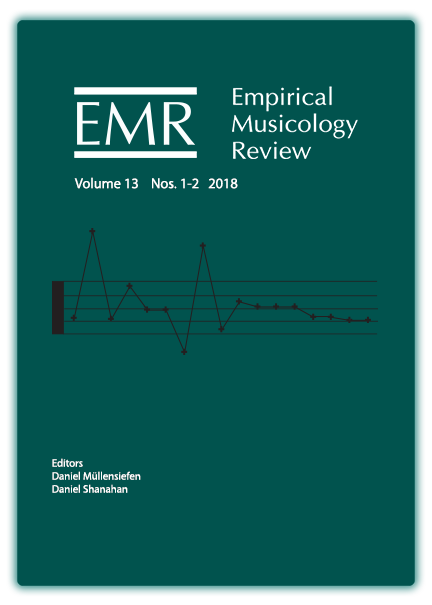Fitness and Musical Taste: Do Physically Fit Listeners Prefer More Stressful Music?
DOI:
https://doi.org/10.18061/emr.v13i1-2.6208Keywords:
musical preferences, stressfulness, physical fitness, music cognitionAbstract
Research suggests that person-based dispositional factors, as well as properties of the music, influence a person's musical taste. In this study, we examined the possibility that the interaction between the stressfulness of the music and a listener's capacity for handling stress contributes to that listener's musical preferences. The key prediction relating fitness to musical preference is that the stressfulness of the music should tend to reflect the person's capacity for handling stress, including his or her physical fitness. The study method made use of an online questionnaire to assess physical fitness, impulsivity and sensation-seeking tendencies, and musical preferences. To create an independent index for estimating musical stressfulness, a parallel study was conducted, where an independent group of judges assessed the stressfulness of the music identified by participants in the main study. The stressfulness of the music was predicted using the survey-based dispositional factors in two regression models, where sex, current age, education, current fitness, and age at the time of musical preference were found to predict the stressfulness of the preferred music. The results suggest that males, younger participants, people with fewer years of education, and those who are more physically fit tend to prefer more stressful music.Published
How to Cite
Issue
Section
License
Copyright (c) 2019 Lindsay Warrenburg, David Huron

This work is licensed under a Creative Commons Attribution-NonCommercial 4.0 International License.


